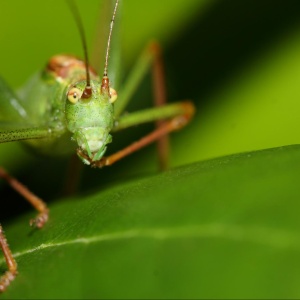
Insects may not be the environmentally-friendly alternative protein source that the FAO and many entrepreneurs hope, according to Oxford University doctoral candidate Joshua Evans.
Evans has done research that leads him to believe that insect production may be no more sustainable than current protein sources, once scaled up. Two recent studies suggest that insects could become less efficient converters of food as production is scaled up, and that insects need a lot of energy-intensive processing to be appealing to consumers. Evans also points to the possibility that global food corporations could take over the insect protein market.
Harold Alderman of the International Food Policy Research Institute points out that income assistance can be more effective than increasing food production when it comes to reducing malnutrition.
Read more here. See also the Foodsource resource What causes different forms of malnutrition?, the blog posts Improving the environmental sustainability of insect farming and Edible insects for food and feed: farming micro livestock for food security in a climate change challenged world and the FCRN summary of the paper Life cycle assessment of cricket farming in north-eastern Thailand, which discusses potential impacts on small-scale producers.







Post a new comment »